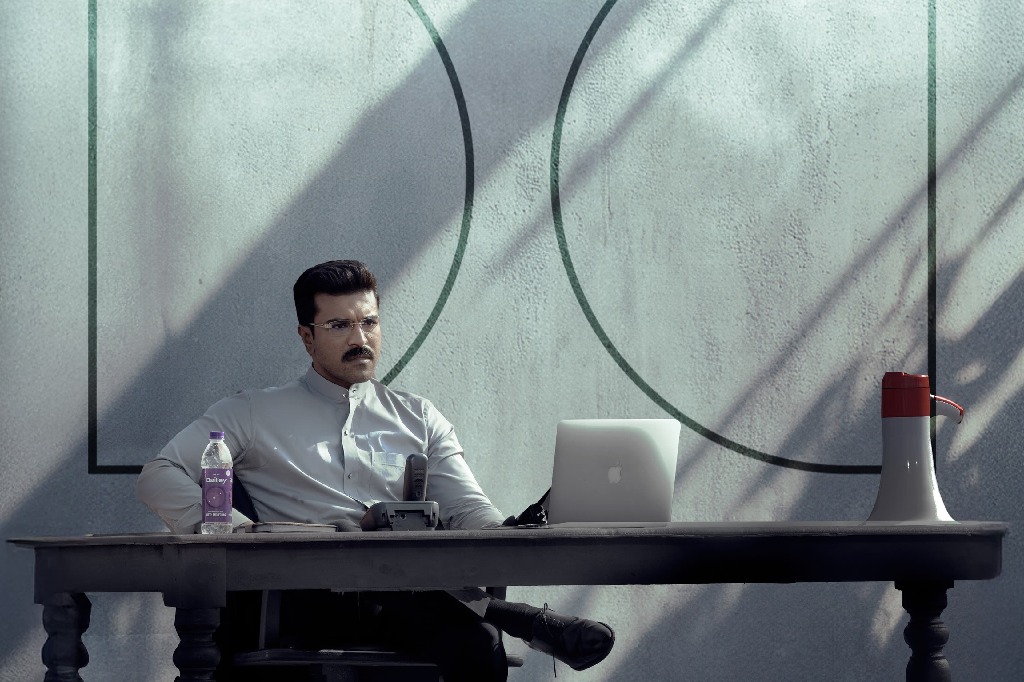Shankar, a director renowned for his grand cinematic vision, joins forces with mass-action hero Ram Charan for Game Changer, a collaboration that generated considerable buzz even before its release. The film’s unique title and political backdrop, combined with the anticipation of seeing Ram Charan on-screen after a five-year hiatus, heightened expectations. Known for delivering impactful narratives, Shankar's involvement further fueled excitement. With such a powerful combination, did Game Changer succeed in living up to the hype? Let’s explore in this review.
Plot Summary:
Ram Nandan (Ram Charan), an IPS officer, resigns to fulfill a promise to his love, Deepika (Kiara Advani), and becomes an IAS officer, taking charge as the collector of his hometown Visakhapatnam. Determined to combat corruption, Ram Nandan confronts Minister Bobbili Mopidevi (S. J. Surya), leading to intense conflict. Simultaneously, Mopidevi's father, Chief Minister Satyamurthy, regrets his past mistakes and supports Ram Nandan instead of his corrupt son. The narrative further unfolds to reveal the connection between Ram Nandan, Satyamurthy, and Ram Charan’s other role, Appanna, a passionate leader fighting for his village's survival. The story explores the political and personal challenges these characters face.
Analysis:
Director Shankar weaves a story around a politically charged narrative, focusing on an IAS officer committed to reforming the system. The storyline draws parallels to Shankar's previous films like Oke Okkadu and Sivaji, but fails to recreate their impact. For such a weighty premise, the scenes needed to be powerfully crafted, but Game Changer struggles to deliver compelling moments.
The lack of convincing, emotionally resonant scenes diminishes the film's appeal. The characters, too, lack the depth to evoke strong emotions. Crucially, the absence of suspense or excitement—a key element expected in such a film—works against it. Predictable developments make it easy for viewers to foresee the plot, reducing engagement.
In today’s world of heightened awareness, especially with the influence of social media, audiences expect logical and realistic portrayals of political and electoral systems. However, Shankar's treatment overlooks these expectations, with scenes that often feel disconnected from real-world logic. This detachment from realism further undermines the film's credibility and appeal.
The inclusion of a love story between Ram Nandan and Deepika disrupts the film's pacing. While Ram Nandan’s journey as a collector fighting corruption draws some inspiration from Oke Okkadu, it lacks the intensity and uniqueness needed to stand out. The confrontations between Ram Nandan and Mopidevi are underwhelming, failing to leave a lasting impression.
The second half introduces a flashback featuring Appanna, which is one of the film's few highlights. Appanna's struggles to protect his village from mining exploitation, his dream of clean politics, and the challenges he faces resonate well with the audience. However, this momentum isn’t sustained in the latter parts of the film. Weak climactic and pre-climactic sequences further dilute the overall impact.
In summary, Game Changer stumbles in leveraging its potentially powerful premise. Stronger scenes, engaging drama, and logical writing were essential for this narrative but are glaringly absent.
Performances:
- Ram Charan: Stellar in his dual roles. As Appanna, his emotional and intense performance is praiseworthy, while his portrayal of Ram Nandan is competent.
- Kiara Advani: Limited scope as Deepika with a typical heroine role.
- Anjali: Impresses as Parvathi, delivering a heartfelt performance after a long gap.
- S. J. Surya: Excels as Mopidevi, adding menace and humor to the antagonist role.
- Supporting cast including Samuthirakani, Rajeev Kanakala, and Sunil, provide functional contributions, though they lack standout moments.
Technical Aspects:
- Direction: Shankar’s trademark grandeur is evident, but the lack of impactful writing and engaging sequences weakens the overall experience.
- Music: Thaman S’s background score elevates some scenes, but the songs lack memorability despite visually appealing picturizations.
- Cinematography: S. Thirunavukkarasu’s visuals add richness and scale to the film.
- Editing: Seamless but could have been sharper, particularly in the dragged portions.
- Writing: The weakest aspect, with lackluster dialogues and an absence of compelling moments.
Final Verdict:
Despite strong performances by Ram Charan and S. J. Surya, Game Changer suffers from a routine storyline, weak screenplay, and lack of emotional connect. While the film has its moments, particularly in the Appanna flashback, it fails to leave a lasting impression. Shankar’s attempt to blend political themes with drama falls short of expectations.
